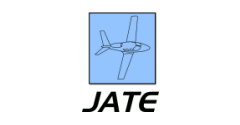Author Background
Dr. Yair Wiseman teaches and advises MSc and PhD students at Bar-Ilan University, Israel Aircraft Industries, and Holon Institute of Technology. He has an MSc and PhD from Bar-Ilan University, and Albert Einstein is his academic great-great-grandfather (i.e., the advisor of the advisor of the advisor of Dr. Wiseman’s advisor). Dr. Wiseman completed two postdocs: at the School of Computer Engineering at the Hebrew University in Jerusalem, and the Georgia Tech Center for Experimental Research in Computer Systems. He has collaborated with other partners and received research grants to run an active laboratory from inter alia Sun Microsystems, Intel, Polak Foundation, and The Open University; and he has evaluated several large projects of the European Union, Israel Science Foundation, MB Logic, and more. He has been a committee member for dozens of conferences around the world and judged numerous academic articles, and he currently serves on the editorial boards of numerous academic journals, including the World Review of Intermodal Transportation Research, Journal of Traffic and Transportation Engineering, American Journal of Vehicle Design, and more.
Abstract
Flight data recorders (FDRs, or black boxes) generate data that is collected on an embedded memory device. A well-known difficulty with these devices is that the embedded memory device runs out of space. To avoid getting into this problematic situation, the software of the FDR is designed to operate in a watchful mode, constantly working to minimize the use of memory space; otherwise a larger FDR would be needed. However, larger FDRs can be a problem because they have very rigorous requirements; thus, enlargement is costly. Outcomes of this research include the recommendation to send FDR data to a remote cloud storage system, so the data memory device will be unbounded.
Recommended Citation
Wiseman, Yair
(2016)
"Can Flight Data Recorder Memory Be Stored on the Cloud?,"
Journal of Aviation Technology and Engineering:
Vol. 6:
Iss.
1, Article 3.
Available at: https://doi.org/10.7771/2159-6670.1119
DOWNLOADS
Since October 17, 2016
COinS


